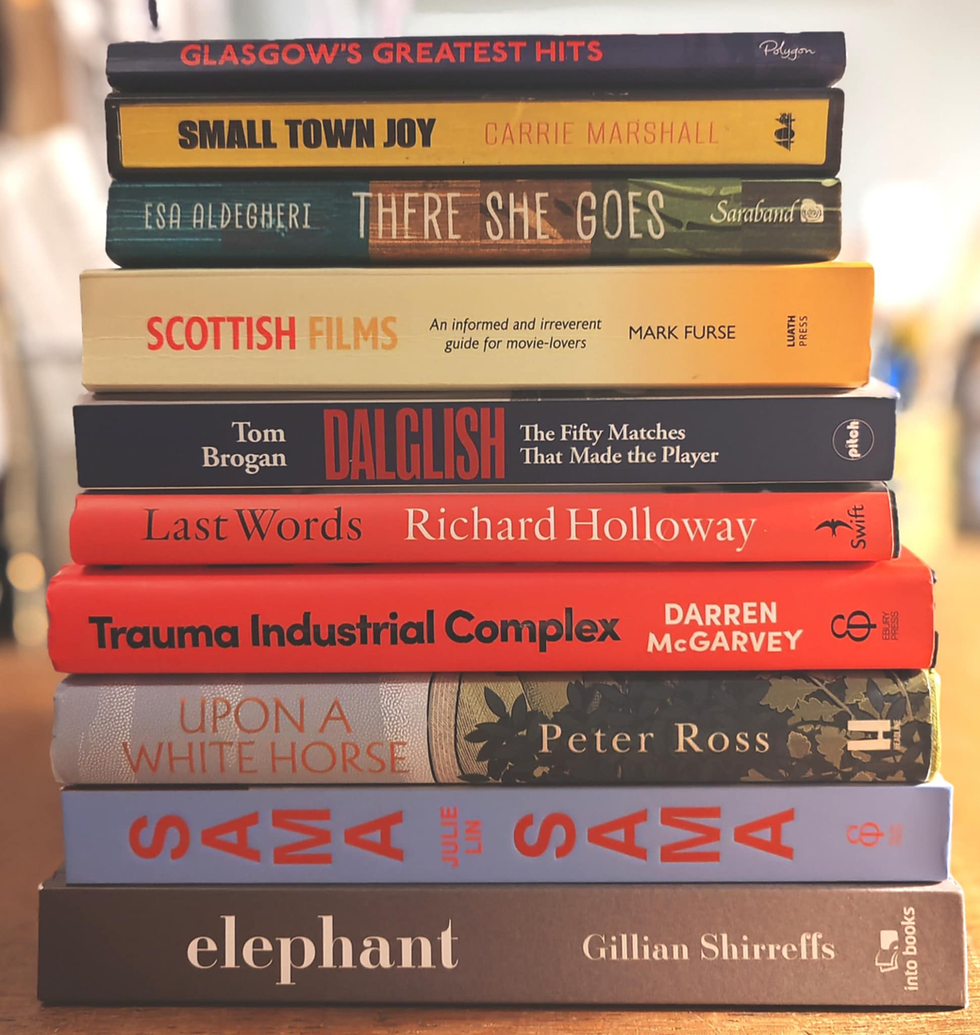Growing Up: A Review Of Graeme Armstrong’s The Young Team…
- Alistair Braidwood

- Aug 18, 2020
- 3 min read

A Scottish novel where pals who have known each other from school fight, drink, and take drugs together, with a central character who seems smarter than the rest? You may think you’ve heard this one before, but Graeme Armstrong‘s The Young Team is so much more than Trainspotting revisited. This is a novel which stands on its own, and announces the arrival of one of the most thrilling and impressive voices in some time, arguably since fellow Airdrieonan David Keenan burst on the scene with This Is Memorial Device in 2017.
That’s not to say that you won’t find echoes of Irvine Welsh’s seminal novel. Indeed, Armstrong encourages some comparison – his protagonist, Alan ‘Azzy’ Williams, having the famous film poster on the wall, and at one point telling ‘Irvine’ that it “wasn’t always shite being Scottish”. Never the less, to concentrate on comparisons would be to do Armstrong a great disservice.
The story follows Azzy and the rest of the Young Team over three distinct time periods as they grow up; 2004, 2008, and 2012. During that time they move from being the genuinely ‘young team’, idolising the “Elders”, but waiting for the day they would rise through the ranks themselves, to the less carefree future of life after school and what that may hold. With the heady years of teenage drink and drugs, (Friday night for fighting and Saturday night for clubbing) beginning to take its toll, it reaches a point where Azzy’s choice is one of fight or flight.
By 2012 matters reach another breaking point, one where Azzy’s future could go different ways. He finds old habits are hard to break, and all too easy to embrace. You could sum up this time with the much-quoted line from The Godfather Part III “Just when I thought I was out, they pull me back in!”, but, of course, it’s more complex than that.
For Azzy his young life has been one of belonging, and personal and collective pride with, and in, his team. This affords the feeling of power, status, and camaraderie, despite, and in no small part because of, the threats and precarious nature of gang culture. He begins to question whether he should try and recapture those glory days or put them behind him forever.
What is most striking about The Young Team is how beautifully it is written. Armstrong’s prose demands to be read so elegant is its execution, which is not always easy when writing in dialect. In fact I am struggling to think of another example when it has been done as well as this, and the one which keeps coming to mind is James Kelman’s Booker winning How Late It Was, How Late which made a similar impact on me on first reading
But it’s not just the aesthetics of Armstrong’s writing which are to be admired, it’s the subject matter as well, and the one wouldn’t work without the other. While the banter, bravado, and bullshit which is a central part of the Young Team’s dynamic is brilliantly rendered, as is the violence in which they are often involved, The Young Team is never so powerful as when Azzy is reflecting on his own life.
Rarely have subjects such as mental health, and particularly the physical and psychological effects of addiction, been so realistically yet artistically portrayed as they are in these chapters. For comparisons, think of Malcolm Lowry’s Under The Volcano, Jim Carroll’s The Basketball Diaries, the aforementioned Trainspotting, or Ron Butlin’s The Sound Of My Voice. Like those Armstrong gets to the heart of addiction in a manner which will evoke empathy and horror, often at the same time. It’s rare to read writing which is so visceral and vibrant yet completely believable, and, often, all too relatable.
The Young Team is not about nostalgia, or taking a tour in someone else’s past. It’s much too immediate for that. You may never have raised a fist in anger, but you’ll recognise the need to belong versus the need to remain an individual, the hopes and fears of teenage years, and the choices made which could, and perhaps did, lead you where you wish you hadn’t gone. You’ll also remember the vitality of youth and why the desire and dream to stay young is such an attractive, if impossible, one.
I could go on at length about just how good The Young Team is, and if you meet me out and about I will likely do just that. (I may even go into the comparisons with the early albums of Bruce Springsteen which I decided not do here for everyone’s sake). Suffice to say that Graeme Armstrong has written a novel that in years to come is going to be considered a landmark in Scottish writing, and you really need to read it to understand why.
The Young Team is out now, published on the Picador Imprint of Pan MacMillan









Comments